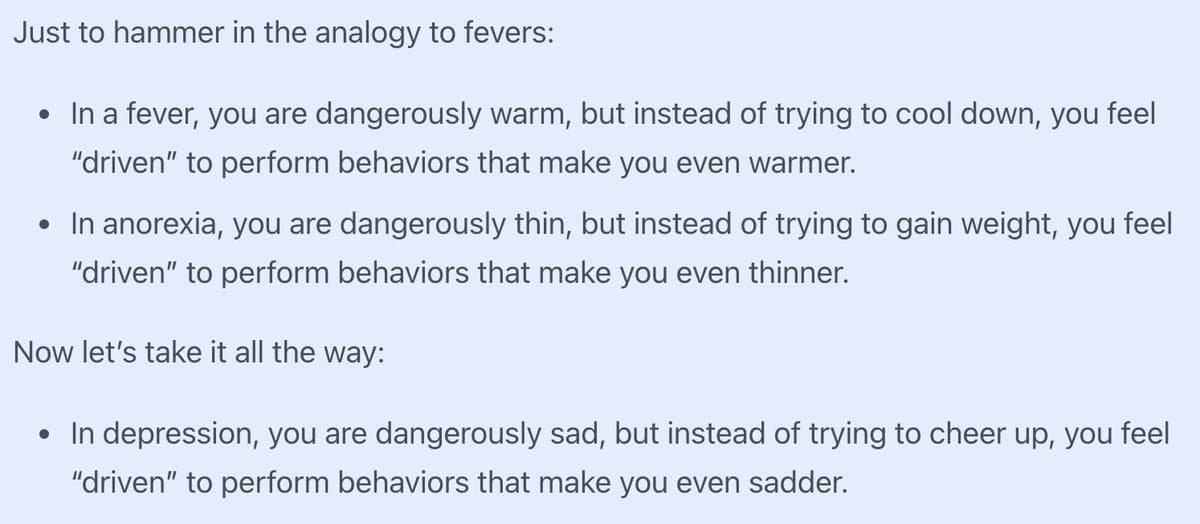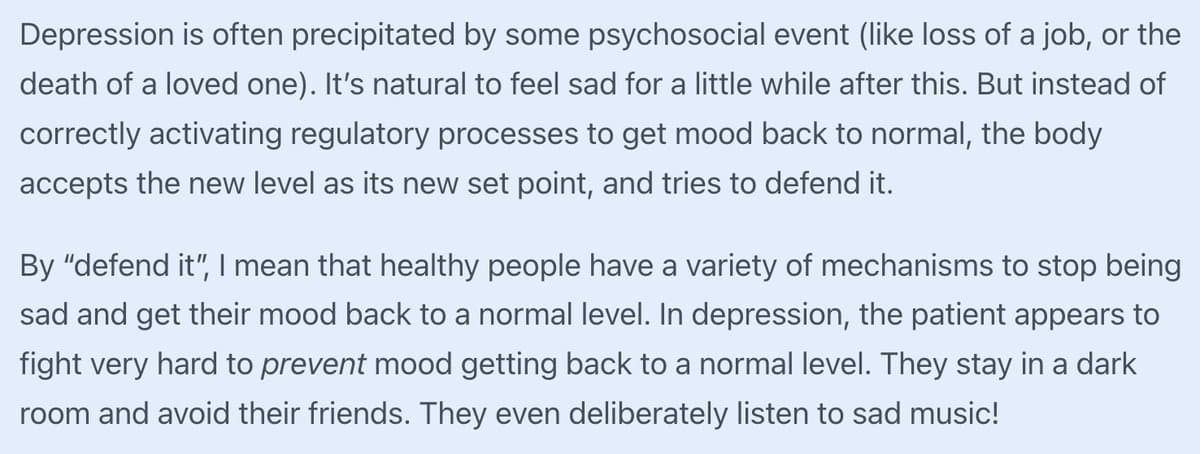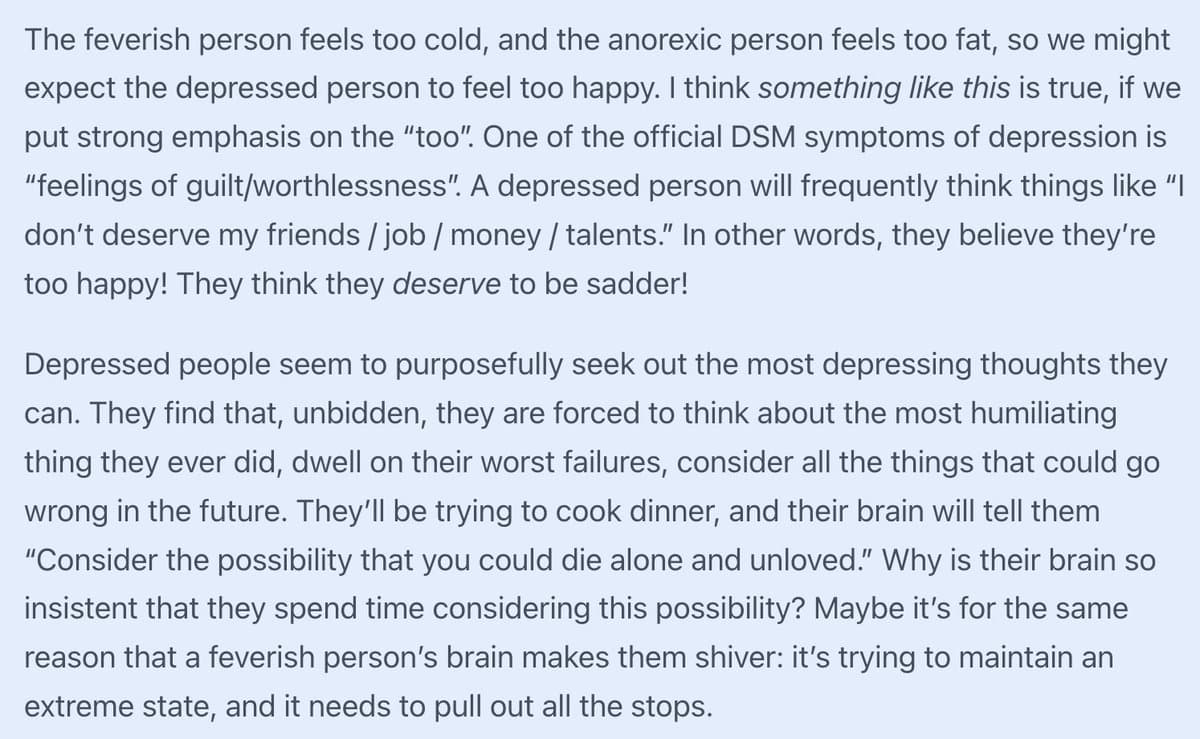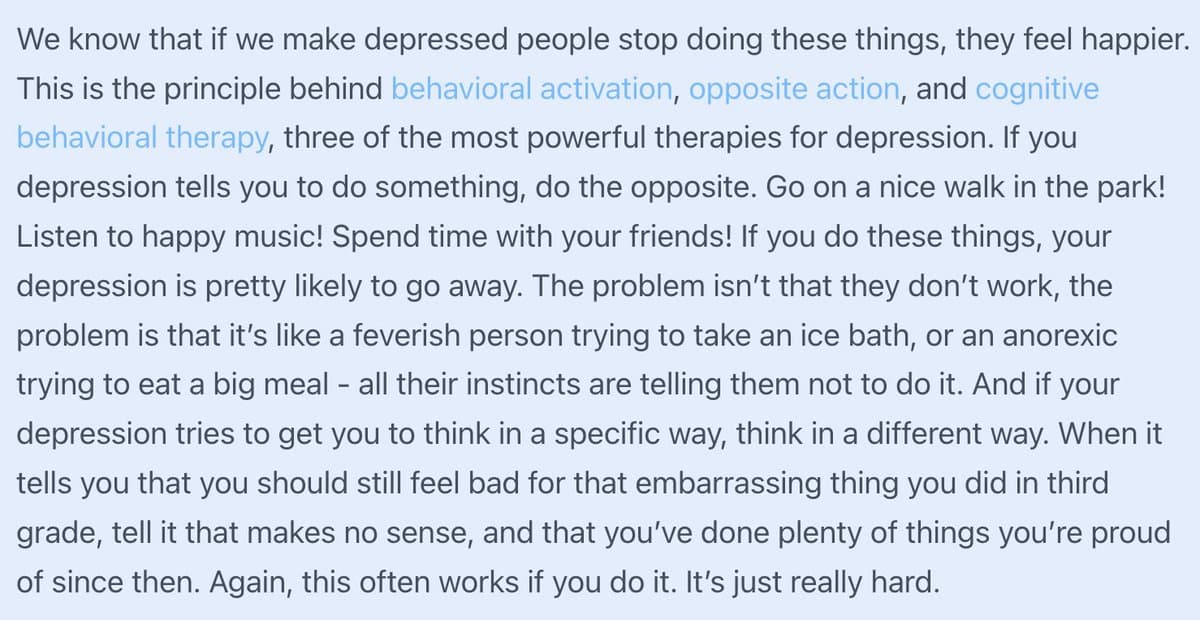🧵 View Thread
🧵 Thread (15 tweets)

scott hypothesizes that depression involves something like defending a sadness set point; you deeply feel that you are supposed to be sad and actively work to make yourself sadder if you become too happy. food for thought https://t.co/MFx92hxUlV https://t.co/814E1qPe9G


> healthy people have a variety of mechanisms to stop being sad.... In depression, the patient appears to fight very hard to prevent mood getting back to a normal level. They stay in a dark room and avoid their friends. They even deliberately listen to sad music! https://t.co/1CkiCEYcVJ


> Depressed people seem to purposefully seek out the most depressing thoughts they can. They find that, unbidden, they are forced to think about the most humiliating thing they ever did, dwell on their worst failures, consider all the things that could go wrong in the future. https://t.co/aXygzUB3jU


> We know that if we make depressed people stop doing these things, they feel happier.... The problem isn’t that they don’t work, the problem is that... all their instincts are telling them not to do it. https://t.co/rwx4MiU2wW


(i don't totally agree with the framing here, there's a more IFS-y or coherence therapy-ish perspective here that would be more respectful of the depression and what it's trying to accomplish, but i'm playing with inhabiting this alternate simpler frame)

hmmmmmmmmm https://t.co/gxMOoxc3VT

Single best example of Inversion: “How to Be Miserable: 40 Strategies You Already Use.” Short book on all the ways we make ourselves unhappy 😲 Made me laugh 🤭. . . and its message got through to me in a way “happiness books” totally fail to reach you when you’re feeling low https://t.co/gICh8EevVn

this is closer to my pov but it's interesting to try to balance the two https://t.co/QXlzpeAIU1

@QiaochuYuan there's a wonderful book called How to Be Miserable: 40 Strategies You Already Use that really drives home how effective depressed people are at being more depressed i certainly relate https://t.co/4FmIf8smFb

Single best example of Inversion: “How to Be Miserable: 40 Strategies You Already Use.” Short book on all the ways we make ourselves unhappy 😲 Made me laugh 🤭. . . and its message got through to me in a way “happiness books” totally fail to reach you when you’re feeling low https://t.co/gICh8EevVn

@QiaochuYuan one way to see eating disorders through repeated, actual experience with them is that they are the symptoms of a sickness that otherwise goes buried https://t.co/Oa0T2AnSMM

@QiaochuYuan the sickness will find a way to be expressed, and noticed, in the hope something, someday will know how to rescue it. else yes, it will burn the ship down https://t.co/aboKgrucVC

@QiaochuYuan simultaneously true that - from the IFS/Coherence lens, depression is often sickness wanting to be touched, and acknowledged - people do just seem to have different equilibriums. they can get stuck in a bad one, and sometimes they "just need to do the happy things" to get out